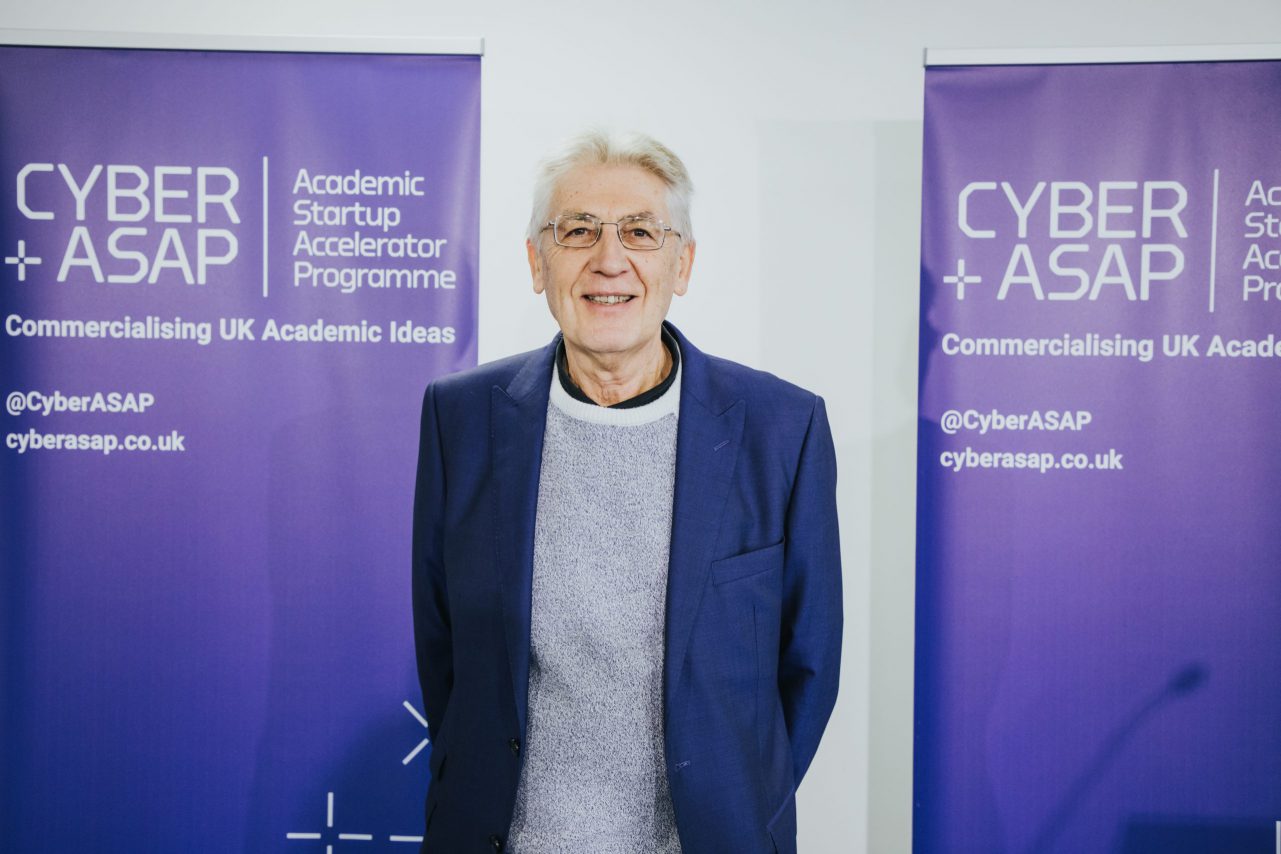Cybersecurity innovations selected for next stage of commercialisation

A diverse range of cybersecurity ideas tackle growing cyber threats via CyberASAP, a unique, pre-seed programme led by KTN, leading academics through all stages of the early commercialisation process and helping prepare them to start cybersecurity companies.
Reports of cyberattacks, ransomware and other online harms have become a daily occurrence. Little wonder in our highly connected world.
As the threats increase, so too does the need for cybersecurity solutions to protect us from compromised online security. These come from many sources, including cybersecurity academics who can play a key part in the innovation pipeline.
But converting academic research into commercially viable products and services can be a real challenge. Not just because the £8.9billion UK market for cybersecurity (according to the Government’s latest 2021 Cyber Sectoral Analysis report) is fiercely competitive, but also because it requires academics to embrace new tools and skills to fully develop their ideas, and test and exploit their marketability.
That’s where the Cyber Security Academic Startup Accelerator Programme (CyberASAP) comes in. Delivered by an experienced team at KTN and their expert network, CyberASAP is a unique, pre-seed programme, leading academics through all stages of the early commercialisation process and helping prepare them for life beyond academia.
Led by KTN’s Emma Fadlon and Robin Kennedy, the programme shares their expertise in early-stage investment and cybersecurity, and draws on their wide network of specialists, helping provide CyberASAP teams with access to further, deep expertise.
Commercial potential….needs to be exploited
“There is so much commercial potential locked up within the diverse academic community that needs to be exploited if the UK is to continue to lead the way in Cyber Security. The KTN-delivered CyberASAP programme is one way to extract that potential and I’m personally delighted that NCC Group is able to support the process of identifying the new and innovative ideas and products that will shape cybersecurity and operational resilience in the years ahead” says Tim Rawlins, Director and Senior Adviser, NCC Group.
Another mentor is Yelena Morozova, Associate, US and European Patent Attorney at Finnegan Europe LLP who added: “Many innovative cybersecurity ideas are born in academia. Commercialising such ideas, however, requires a whole new set of knowledge and skills, including understanding intellectual property (IP) rights and appreciating the role that IP plays in growing a business.
CyberASAP guides academics on their journey towards commercialisation. I am delighted to be assisting CyberASAP with helping academics to learn about IP rights and ownership, and developing IP strategies that align with business objectives, which is vital for building a successful business.”
Teams progressing to the second phase of Market Validation
Teams are selected for every stage of CyberASAP in order to identify the individuals and ideas most likely to benefit from commercialisation support.
The following teams have been selected to complete the first phase of the programme: Market Validation.
Aston University
Synthetic Cryptocurrency Fraud Simulator
Edge Hill University
CyberSignature: Online Authentication using User Behaviour Profiling
Imperial College London
The Royal-Imperial Black Box
Middlesex University
AdvMLTester: A Security Evaluation Tool for Machine Learning Systems
Royal Holloway University of London
Tensorcrypt: Democratising Encrypted Data Analytics
Teesside University
HackEscape
University of Essex
Ultra NetAI – Network Attachment Inspection
University of Hertfordshire
OSIRT – A rigorous and transparent OSINT collection platform
University of Salford
SmartPREX (Privextractor): A Privacy Awareness Package to Redress the Imbalance of Understanding Between Users and Vendors of Smart-home Devices
University of Salford
WalletFind: An Automatic Digital Forensic Investigation of Hardware and Software Cryptocurrency Wallets
University of Wolverhampton
FedCam: Secure Federation for Visual Sensor (Camera)
University of Wolverhampton
TrustMe: Secure and Trustworthy AI platform for FinTech
University College London
Timing Anomalies as an Indicator of Mal-Intervention in Automation Systems (TAIMAS)
University College London
Improving Security with Techno-Human Vulnerability Analysis (THuVA)
These teams will now benefit from training that focuses on tools for Market Validation of their Value Proposition as well as a range of interventions including workshops on PR and Digital Marketing, and a Meet the Entrepreneur Day in the second stage of the Market Validation phase of the programme. A further selection process will identify the teams who will receive further funding to develop their Proofs of Concepts.
Though this programme is focused on supporting academics in cybersecurity, the comprehensive package of support is not sector-specific, it’s a programme of interventions from which any would-be startup could benefit.
Get involved in CyberASAP
If you are an Academic or University Technology Transfer Officer, Industrialist, investor or have an interest in being involved or supporting the CyberASAP programme in any way, please provide your details here so that we can make sure you’re updated with the relevant information.
If you’d like to know more about the CyberASAP programme please contact Robin Kennedy or Emma Fadlon.
Connect with us:
Email: cyberasap@ktn-uk.org
Follow us on Twitter @CyberASAP.
LinkedIn: www.linkedin.com/showcase/cyberasap
CyberASAP is funded by the UK Government Department for Digital, Culture Media & Sport (DCMS) and delivered in partnership by Innovate UK and KTN.



